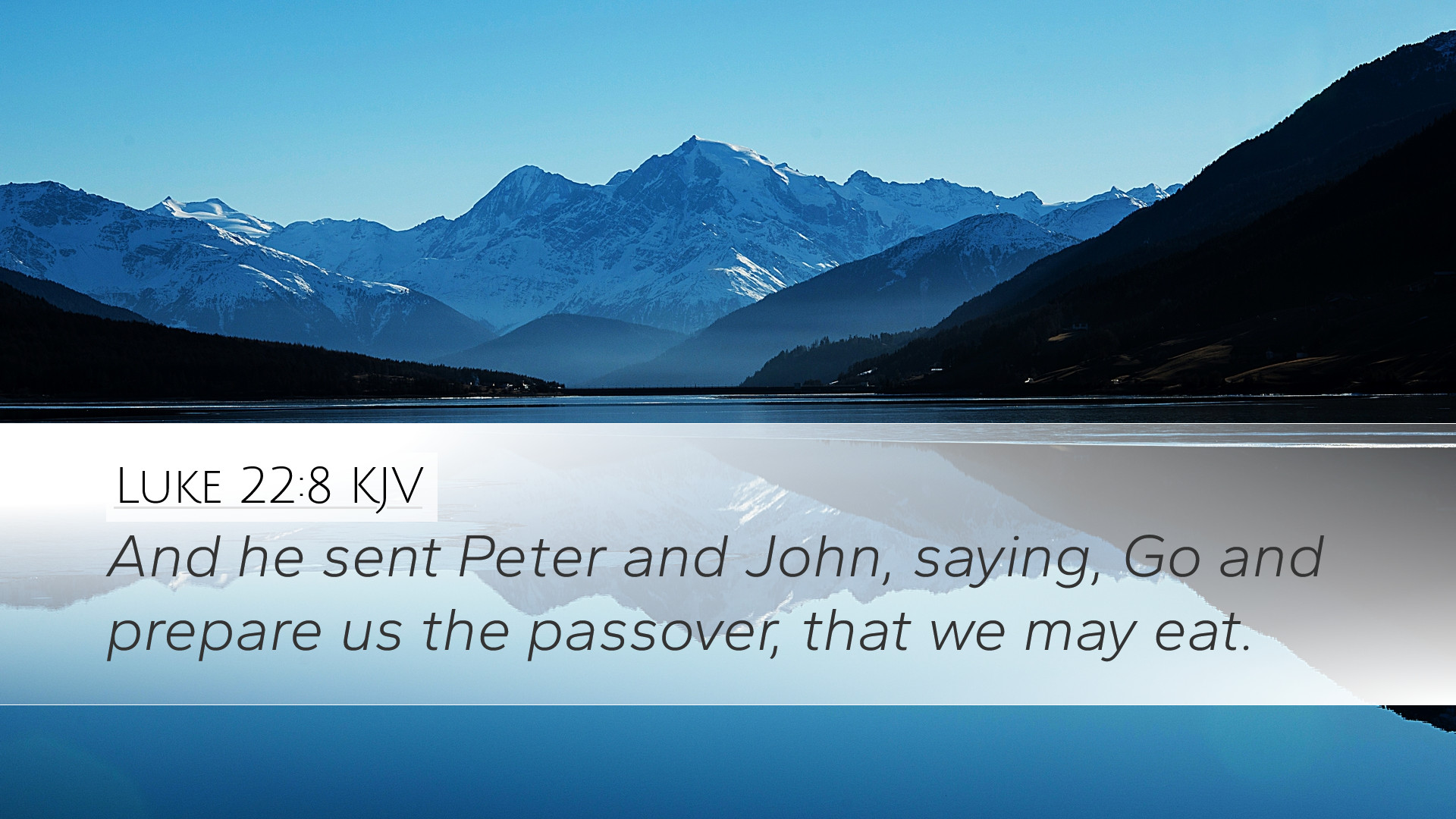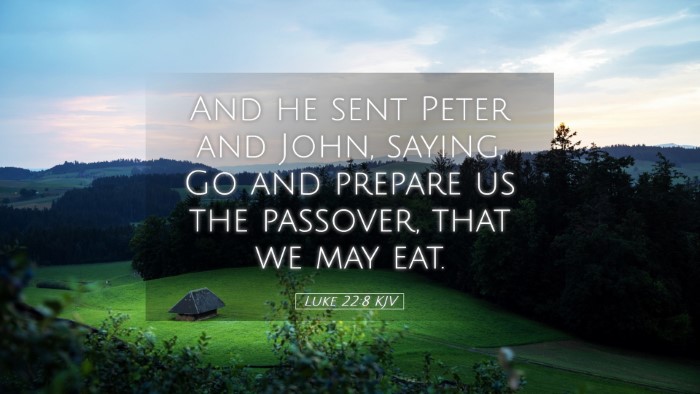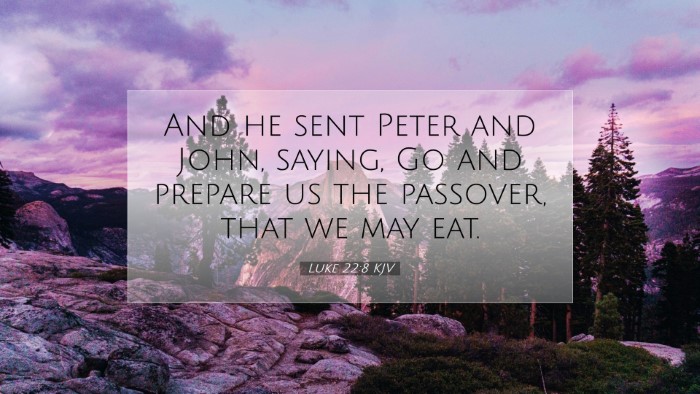Commentary on Luke 22:8
Luke 22:8 states:
"And he sent Peter and John, saying, Go and prepare us the passover, that we may eat." (KJV)
Overview
This verse occurs in a pivotal moment leading to the Last Supper, which is rich with theological implications and narrative significance. The directive given by Jesus to His disciples, particularly Peter and John, not only showcases the plan for Passover but also reflects the profound layers of meaning connected with fulfillment of scripture, the institution of the Eucharist, and Jesus' forthcoming passion.
The Directive: Implications of Preparation
In the context of Passover, the preparation mentioned is integral. Matthew Henry emphasizes that the preparation for the Passover was not merely a logistical arrangement but held deep spiritual significance. This act of preparing symbolizes readiness and anticipation of God's deliverance.
Key Insights: Matthew Henry
- Preparation for Passover: Henry notes how the preparation required specific attention to the details outlined in the Law, reflecting the importance of the ritualistic observance that Jews were to uphold.
- Delegation of Authority: Sending Peter and John emphasizes the leadership roles within the group and highlights the trust Jesus placed in them to execute His commands.
- Focus on Community: The act of gathering for Passover underscores the communal aspect of faith, preparing not only for a meal but for fellowship with God and each other.
Roles of Peter and John
Albert Barnes offers insight into the significance of choosing Peter and John for this task. This choice points to the evolving roles of these disciples, soon to be integral figures in the foundation of the Christian Church.
Key Insights: Albert Barnes
- Symbolic Representation: Peter and John represent the leadership and diversity within Jesus’ followers, indicating the responsibilities that would later fall upon them after Christ's ascension.
- Foresight: Their selection suggests a preordained acknowledgment of their character and capabilities, showcasing Jesus’ foreknowledge and the strategic planning involved in these final events.
Theological Significance
Adam Clarke provides a detailed examination of the Passover in connection with the Last Supper, emphasizing how the elements of the meal symbolize Christ’s body and blood, thus inaugurating a new covenant.
Key Insights: Adam Clarke
- Covenantal Shift: Clarke points out that this act of preparation not only adheres to Jewish tradition but also signals a shift toward a new covenant—one that encompasses all of humanity through Christ's sacrifice.
- Foreshadowing Redemption: The directives given to prepare the Passover evoke echoes of Israel's redemption from Egypt, foreshadowing Jesus as the ultimate Passover Lamb.
Theological Themes and Reflections
This verse speaks volumes about the themes of obedience, responsibility, and divine intent. It invites reflection on how the actions of individuals in the biblical narrative serve greater purposes beyond their immediate context.
- Obedience to Divine Command: The act of going to prepare the Passover illustrates key aspects of discipleship—an inclination to follow Christ's instructions promptly and with intent.
- Preparation as a Spiritual Discipline: This preparation can be likened to the inward preparation believers are called to engage in as they anticipate partaking in communion, reflecting on Christ's sacrifice.
- Community in Worship: The establishment of communal meals serves as a reminder of the necessity of gathering in worship, especially as we reflect on the significance of the sacrificial love exhibited by Christ.
Conclusion
Luke 22:8 invites pastors, scholars, and students to consider the profound layers embedded within the preparation for the Passover. Through the insights of Matthew Henry, Albert Barnes, and Adam Clarke, we gain a multifaceted understanding of obedience, the establishment of a new covenant, and the significance of community in worship. As we reflect on this verse, may we be inspired both to recognize and engage in the preparations necessary in our spiritual lives, awaiting the coming of Christ with hearts attuned to His purposes.


